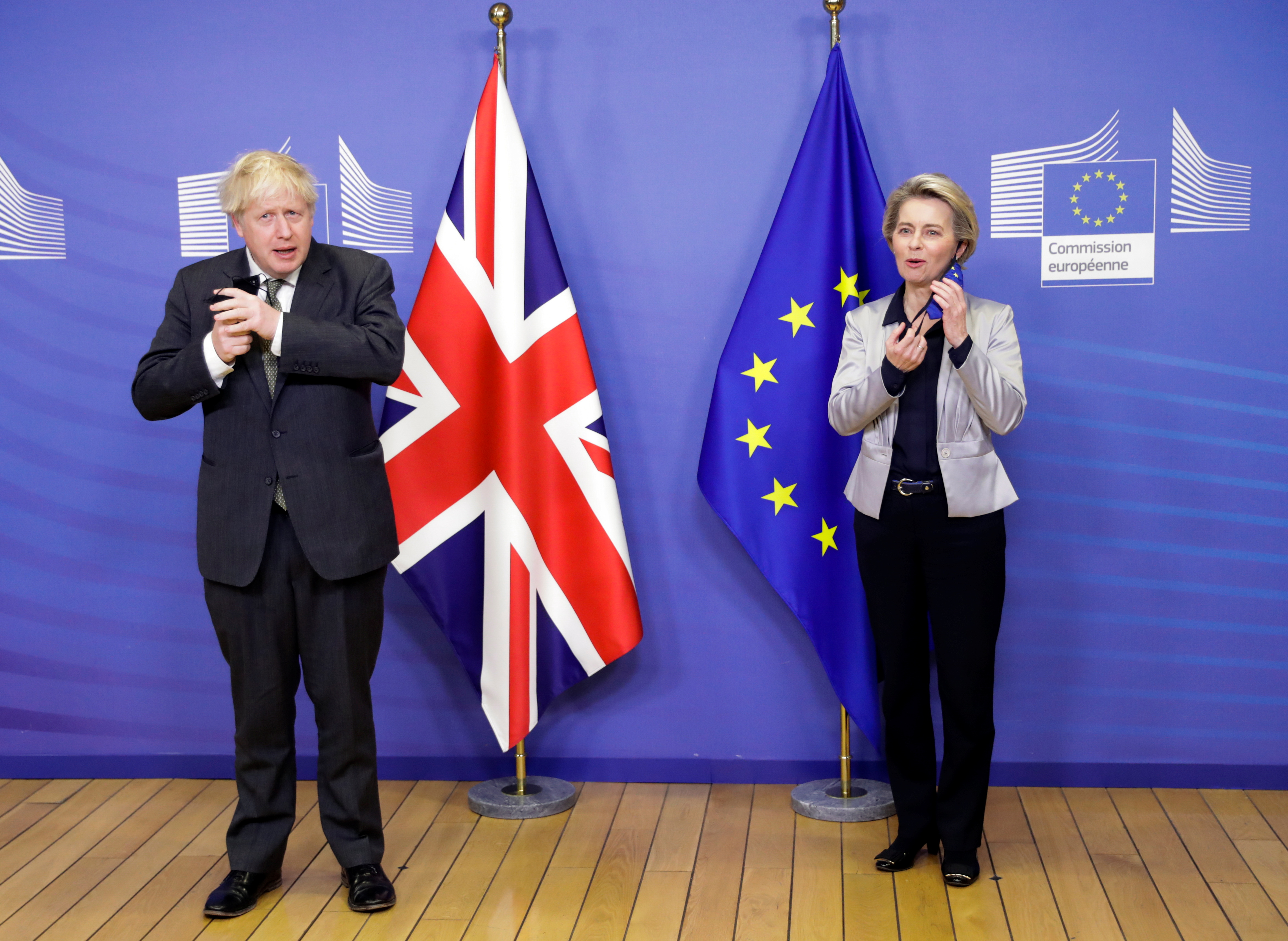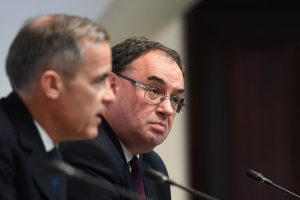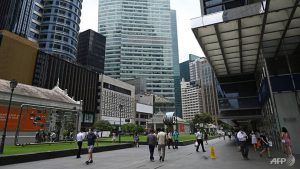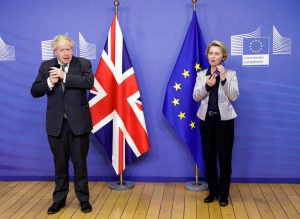(ATF) Hopes of a Brexit deal remained alive Tuesday as European and British leaders prepared for another day of negotiations.
EU chief Ursula von der Leyen expressed satisfaction Monday, saying there was progress as talks entered the “last mile” and chief EU negotiator Michel Barnier signalled there was a “narrow path” to forging a post-severance trade deal.
But reports Tuesday suggested fishing rights remained a sticking point that could still see the UK leave the bloc without a deal on January 1.
Read More: China unveils the latest generation of AI-powered security applications
“First of all there is movement. That is good… We are talking about a new beginning with old friends,” von der Leyen told a conference organised by the Organisation for Economic Cooperation and Development (OECD).
“We are on the very last mile to go. But it is an essential one. We want a level playing field, not only at the start, but also over time,” she added.
Talks were extended after a Sunday deadline to reach a deal came and went with both side still apparently stuck on the principles of creating a level playing field for business and replacing the much-maligned Common Fisheries Policy.
Fishing rights
Fishing rights are an emotive issue in the UK, where the tiny industry feels it has been sacrificed by the CFP in favour of the much larger French and Spanish trawler fleets. UK negotiators and Prime Minister Boris Johnson have made fishing a key plank in any agreement after the plight of the UK’s 12,000 fisherfolk was used as an emotional appeal by right-wing Brexiters during the secession referendum campaign in 2016.
The Financial Times reported Tuesday that fishing remained the last sticking point.
French Finance Minister Bruno Le Maire had in a radio interview earlier warned that in the event of a no deal in the trade talks “the losers will be the British. We don’t lose much.”
Also Read: China factory output rises 7% as economy shakes off pandemic
Germany said it is still rooting for a Brexit deal between Britain and the EU, as the two sides remained locked in trade talks after sailing past a supposed make-or-break deadline.
“The hand of the European Union remains outstretched. We still want to achieve a good result for citizens on both sides of the Channel,” Berlin’s Europe minister Michael Roth told AFP.
“A lot of political will, creativity and speed from everyone” were the crucial ingredients for agreement, Roth said, adding that negotiators were “working day and night for a good solution”.
Transition period
Britain left the EU on January 31 after five decades of integration, but a transition period during which it remains bound by the bloc’s rules ends on December 31.
Without a post-Brexit deal, Britain’s trade with its biggest market would in future operate on pared-down World Trade Organization (WTO) rules, including tariffs and quotas.
Johnson has insisted it remains “most likely” that Britain will crash out of the globe’s largest single market by year’s end as the two sides spar over regulating future standards and on fishing rights.
An EU diplomat said following a briefing from Barnier that “there might now be a narrow path to an agreement visible — negotiators can clear the remaining hurdles in the next few days”.
But “substantial gaps still need to be bridged in important areas like fisheries, governance and level playing field,” the diplomat said.
An EU source said London had now accepted there should be a mechanism to regulate any future divergences in trading standards.
More serious blockages remain “on all fronts” on the issue of fishing rights, the source said.
“If there is progress on fishing then we could have an agreement in the coming days,” the official said.
Johnson’s official spokesman did not say whether there had been any progress and insisted no deal remains a “possible outcome”.
- Additional reporting by AFP
























